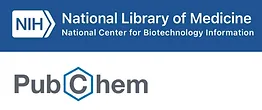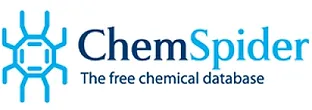AGGIORNAMENTO SCIENTIFICO IN TEMPO REALE FORNITO DA:

Top News
- Can Brain Scans Tell Which Antidepressant Will Work for You?by Neuroscience News on 23 Aprile 2025
A new study shows that brain connectivity patterns, especially in the dorsal anterior cingulate cortex, can help predict how patients with major depressive disorder (MDD) will respond to antidepressants. By combining brain imaging with clinical data, researchers developed machine learning models that accurately predicted treatment outcomes across two large trials.
- People Worry More About Today’s AI Harms Than Future Catastrophesby Neuroscience News on 23 Aprile 2025
A new study finds that people are more concerned about the immediate risks of artificial intelligence—like job loss, bias, and disinformation—than they are about hypothetical future threats to humanity. Researchers exposed over 10,000 participants to different AI narratives and found that, while future catastrophes raise concern, real-world present dangers resonate more strongly.
- Babies Learn Words Without Visualsby Neuroscience News on 23 Aprile 2025
Infants as young as 15 months can use language context to infer the meaning of words referring to objects they’ve never seen. Researchers found that when 15-month-olds heard a new word in a familiar context—like "kumquat" during a conversation about fruit—they later identified the unseen object correctly.
- Human Eyes See New Color “Olo” for the First Timeby Neuroscience News on 23 Aprile 2025
Scientists have created a technology called Oz that stimulates individual photoreceptor cells in the human eye to create an entirely new, ultra-saturated color never seen in nature—dubbed olo. Using microdoses of laser light, Oz activates specific combinations of cone cells to generate this vivid blue-green hue, which vanishes the moment the precision targeting is disrupted.
- The Brain Remembers Cold: How Memories Drive Metabolismby Neuroscience News on 23 Aprile 2025
New research reveals that the brain stores memories of cold experiences, which can later trigger metabolic responses in anticipation of cold environments. Mice trained to associate visual cues with cold temperatures began to increase their metabolism when shown those cues—even at room temperature.
- Microscopic Plastics Found in Arteries Linked to Stroke Symptomsby Neuroscience News on 23 Aprile 2025
Micronanoplastics—tiny plastic particles from environmental sources—were found in much higher concentrations in the arteries of people with plaque-related stroke symptoms compared to those with healthy arteries. In a new study, individuals with symptomatic carotid plaque had plastic levels up to 51 times higher than those without plaque.
- Brain’s Visual Symphony: How We See the World in Real Timeby Neuroscience News on 23 Aprile 2025
Our brain doesn't passively receive visual input—it actively orchestrates a symphony of neural oscillations to process the complex, dynamic scenes we see in everyday life. A new study reveals that features like brightness and contrast in different parts of the visual field trigger distinct oscillations across specific neural circuits.
- Psychedelics May Reset Brain-Immune Link Driving Fear and Anxietyby Neuroscience News on 23 Aprile 2025
A new study reveals that chronic stress activates immune cells that travel to the brain, amplify inflammation, and heighten fear responses. Researchers found that psychedelics like MDMA and psilocybin disrupt this immune-brain crosstalk, reducing stress-related fear in mice and showing similar effects in human tissue samples.
- Middle-Aged Americans Are the Loneliest, Global Study Findsby Neuroscience News on 23 Aprile 2025
A large international study has found that middle-aged Americans report higher levels of loneliness than older adults, a pattern seen in only one other country—the Netherlands. While loneliness generally increases with age globally, the U.S. stands out as an exception, with factors like unemployment, caregiving burdens, and lack of social support systems driving middle-aged isolation.
- Clearing Zombie Cells Eases Back Painby Neuroscience News on 23 Aprile 2025
A new preclinical study has found that two drugs—o-Vanillin and RG-7112—can clear “zombie cells” from spinal discs, potentially treating the root cause of chronic low back pain. These senescent cells accumulate with age or injury and cause inflammation, pain, and tissue damage.
- Psychedelic Sparks Long-Term Brain Plasticityby Neuroscience News on 23 Aprile 2025
A single dose of the psychedelic compound 25CN-NBOH significantly improved cognitive flexibility in mice, with effects lasting up to three weeks post-treatment. Treated mice adapted more quickly in rule-switching tasks, indicating enhanced neuroplasticity in the prefrontal cortex.
- Obesity Throws Metabolism Timing Off Balanceby Neuroscience News on 23 Aprile 2025
A new study reveals that while the molecular structure of liver metabolism remains intact during starvation, obesity disrupts the precise timing of metabolic responses. In healthy mice, key "hub" molecules like ATP and AMP responded rapidly and in a coordinated sequence to starvation.

















